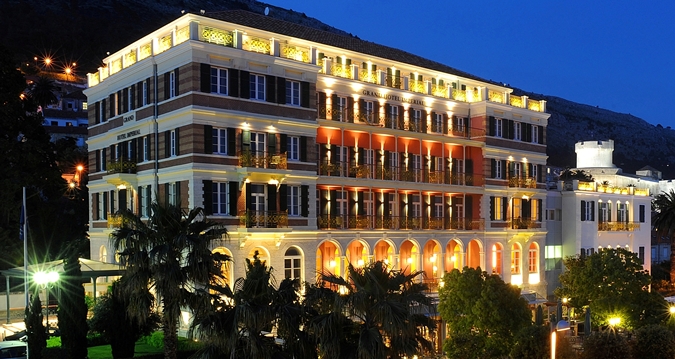Croatia's hotel market has maintained a below average number of hotel chains although 12 global and six European brands currently have 46 locations (9,500 guestrooms) in the country, consultant Sanja Čižmar from HD Consulting for Poslovni.hr told Total Croatia News. "Unlike 10 years ago, there is a lot of interest for hotel brands in Croatia, given its growing popularity and attractiveness . as a tourist destination. However, there are still not enough quality hotel projects that meet the standards of high quality and luxury brands," Čižmar told the site.
Čižmar explained that Croatia is below the European average because the hotels operating under international brands make up close to 25 percent of Croatia's total hotel stock, about one-third of the total hotel capacity in Europe. These are hotels that brands operate through very complex management contracts or franchise agreements for many years. The brands include Hilton Worldwide (Hilton in Dubrovnik and DoubleTree by Hilton in Zagreb), Marriott International (Sheraton in Zagreb and Dubrovnik and Westin in Zagreb, Le Meridien in Split), Kempinksi in Savudrija, Radisson Blu in Split and Dubrovnik, Park Plaza in Pula and Medulin, Meliá and Sol in Umag, Best Western in Zagreb, Split and Rijeka and Rixos in Dubrovnik.
While hotel investment in Croatia's hotel industry has started to gain momentum, international hotel groups have increasingly begun to announce their forays into the market. Some of international luxury brands, including the Four Seasons (in Hvar), Amanresort (in Cavtat), Ritz Carlton (in Kupari) and a few others are currently in talks to enter into Croatia. "In general, the entry of hotel brands into the Croatian market is a good thing for the country's recognition in the international tourist market. Although most do not invest money, the hotel brands bring global marketing and market access through high sales and loyalty programs, as well as quality standards throughout daily hotel management," Čižmar said.

The estimated overall costs of signing a franchise or contract management agreement with a brand are around 7 to 10 percent of the total annual hotel income, which is high and should be paid for with generated revenue that exceeds these costs. In management contracts, hotel operators usually don't guarantee strong business results will be achieved. "Hotel chains do not usually invest their capital in the places they enter, and there are very few cases of hotel chains investing in the property of a hotel," Čižmar explained. "When they decide to do so, it is only for the so-called 'premium destinations,' such as the best locations in the largest European cities, or the most attractive holiday destinations that are globally well positioned on the tourist market and are generally not marked by a high degree of seasonality."
However, Croatia has its own regional brands that operate in a smaller number of countries, including Falkensteiner, Karisma, LifeClass and Arcotel among others. The country has hotels that are members of hotel marketing alliances, which include The Leading Hotels of the World, Small Luxury Hotels of the World, Designhotels, Relais & Chateaux, Kinderhotels and Great Hotels of the World. Čižmar explained, "The somewhat smaller presence of international hotel brands in Croatia can be partly explained by the strength of domestic hotels and tourist groups because there is a very high degree of hotel market consolidation in Europe, atypical on the European scale, where the 10 largest domestic hotels and tourist companies manage more than 40 percent of the total hotel rooms." These domestic hotel groups have become more focused on investing their resources in "improving hotel quality and managing their portfolios." Although there are some exceptions, most Croatian hotel brands don't partner with international hotel brands and some groups successfully establish their own brands.
Some domestic hotel groups have aimed to apply similar strategies to those of international hotel operators across multiple destinations through management agreements with hotel owners. Meanwhile, they are no longer investing in acquiring or developing new hotels. Some of the strongest of these domestic companies have started to show the intention to increase their portfolio outside of Croatia.
